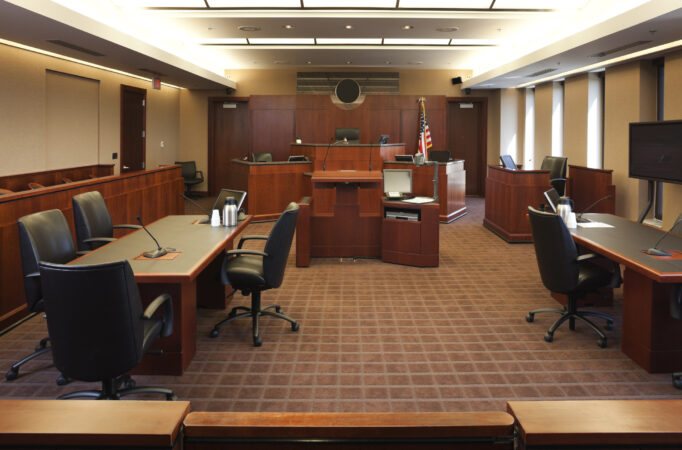Litigation
Pa. Supreme Court Gives Employers An Important Warning And Reminder About Non-Compete Agreements
The Pa. Supreme Court on June 16, 2020, invalidated an employer’s written non-compete agreement because it was signed after the start of employment. Rullex Co. v. Tel-Stream, Inc., No. 27 EAP 2019 (Pa. 2020). All contracts, to be binding, must be supported by what courts call “consideration,” which simply means the employee received something of value in return for signing the agreement.
It has long been the law in Pennsylvania, but not all other states, that continued employment-at-will is not sufficient value as the employee can be fired at any time, with or without reason. Thus, in Pennsylvania, a non-compete agreement should be signed prior to or at the start of employment or be signed in return for a promotion, pay raise, cash payment, new fringe benefit, job security commitment, or something else of sufficient value.
As for neighboring states, Delaware, Maryland, New Jersey, New York, and Ohio accept continued employment as sufficient consideration for a non-compete but West Virginia does not.
Pennsylvania courts in the past have allowed a little wiggle room timewise if the non-compete agreement is signed at or shortly after hire. This new Supreme Court decision clarifies and limits this contemporaneous signing requirement. Essentially, the Court requires the employer and employee to reach an understanding on or acceptance of terms for the non-compete at or before the beginning of employment, even if only done verbally or by actions, while the agreement is signed later. This means there will likely be adequate consideration for the non-compete agreement if, even though it is signed after the first day of employment, the employer and employee, by the first day of employment, had, at least orally (or perhaps by their conduct), agreed to the non-compete terms (or all but minor items regarding it).
In this new case, the employee signed the non-compete about two months after starting employment. Prior to the start of his employment, the employer explained the non-compete agreement to the employee (for whom English was a second language) and told him he could take some time to review it, including with a lawyer, and to let them know if he had any issues with it. The employee didn’t request or make any changes to the non-compete and got around to signing it two months after starting work. The Court held that since the employer and employee didn’t come to a meeting of the minds on or signing of the non-compete agreement by the start of employment, it was unenforceable due to the lack of consideration (all the employee received for signing it was continued employment, no additional money or other items of value). This was a significant blow to the employer who had filed this lawsuit to stop the now-former employee from working for a competitor.
The take-away from this is that employers in Pennsylvania should be careful to make sure there is adequate consideration for their non-compete agreements. The safest thing to do with new hires is to require and get the agreement signed before the start of employment. We recommend covering it in your job offer letter, including stating it is required as a condition of starting employment, and attach a copy of it to the job offer letter. Many employers have not done this and we are available to help you work through correcting this situation or reviewing your job offer letters. We are also available to guide you through and recommend options for non-compete, non-solicitation, confidentiality and other agreements (which are generally covered by the same consideration requirements). These agreements can be very helpful when a departing employee tries to take your business away from you. You may contact the author of this article, listed below, or your other Houston Harbaugh attorney.
Craig M. Brooks, Esq. Head of Houston Harbaugh Employment Law Group
412-288-2214 cbrooks@hh-law.com
About Us
The litigation attorneys at Houston Harbaugh, P.C., are accomplished business trial lawyers, providing comprehensive support in litigation across a broad spectrum of matters throughout Pennsylvania, West Virginia, Ohio and other jurisdictions upon a special admission basis. Our clients are regional and national small, medium and large companies and individuals who seek well planned and aggressive, but cost effective litigation. We counsel, we budget, we have a deep bench, we act quickly when needed and we have experienced trial lawyers who know the courts and bench. We serve regularly as local counsel for some of the largest law firms in the country when they have matters in this region.

Henry M. Sneath - Practice Chair
Co-Chair of Houston Harbaugh’s Litigation Practice, and Chair of its Intellectual Property Practice, Henry Sneath is a trial attorney, mediator, arbitrator and Federal Court Approved Mediation Neutral and Special Master with extensive federal and state court trial experience in cases involving commercial disputes, breach of contract litigation, intellectual property matters, patent, trademark and copyright infringement, trade secret misappropriation, DTSA claims, cyber security and data breach prevention, mitigation and litigation, probate trusts and estates litigation, construction claims, eminent domain, professional negligence lawsuits, pharmaceutical, products liability and catastrophic injury litigation, insurance coverage, and insurance bad faith claims.

Samuel H. Simon - Practice Chair
As co-chair of Houston Harbaugh’s Litigation Group, Sam focuses his practice on commercial/business litigation. Sam regularly represents clients in the construction, manufacturing, oil and gas, and wholesale/retail/ distribution industries, as well as individuals in matters such as:
- Construction litigation
- Environmental litigation
- Breach of contract disputes
- Oil and gas litigation
- Negligence
- Restrictive covenants (non-compete agreements)
- Civil rights
- Collections/creditors’ rights
- Lease disputes

